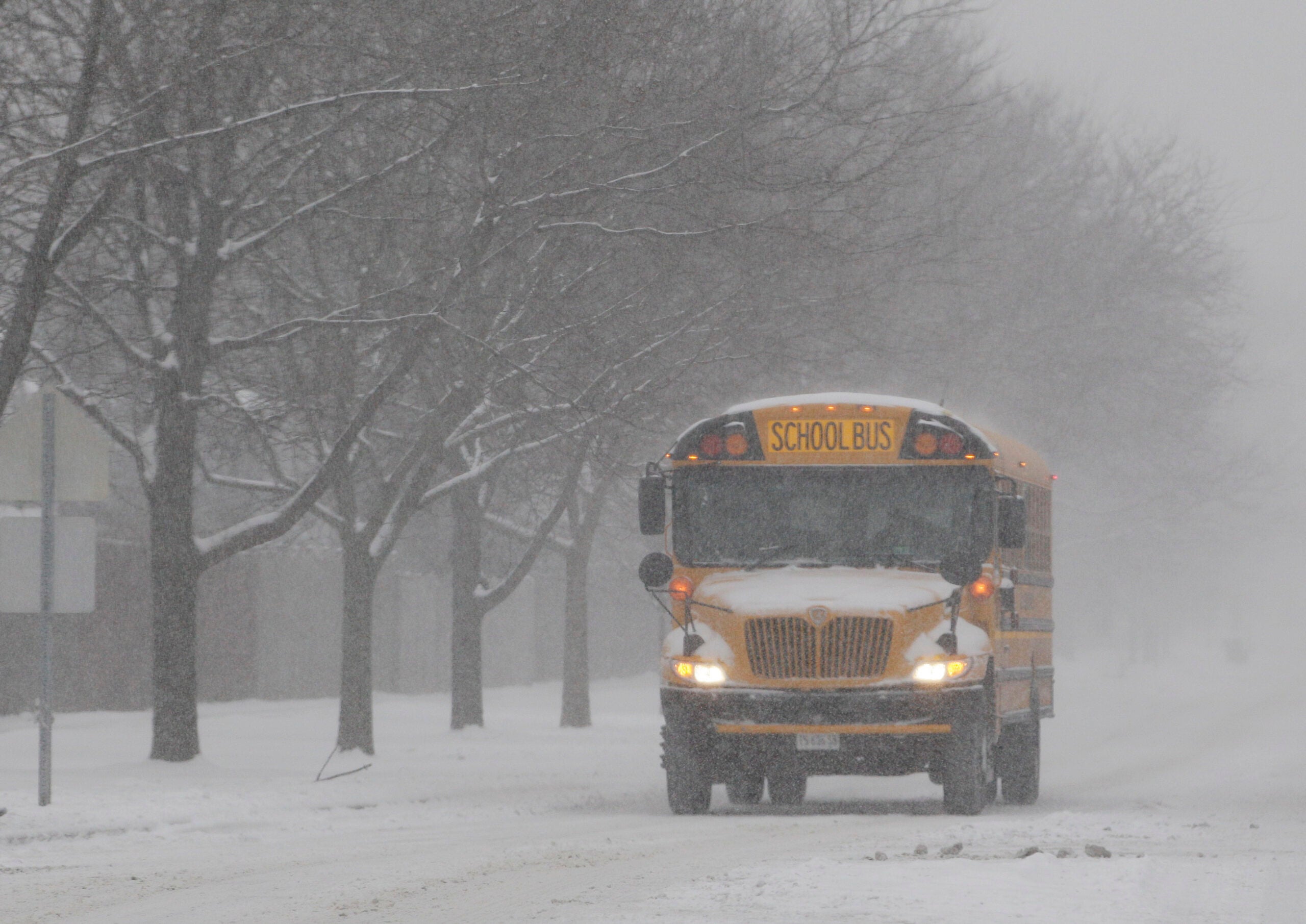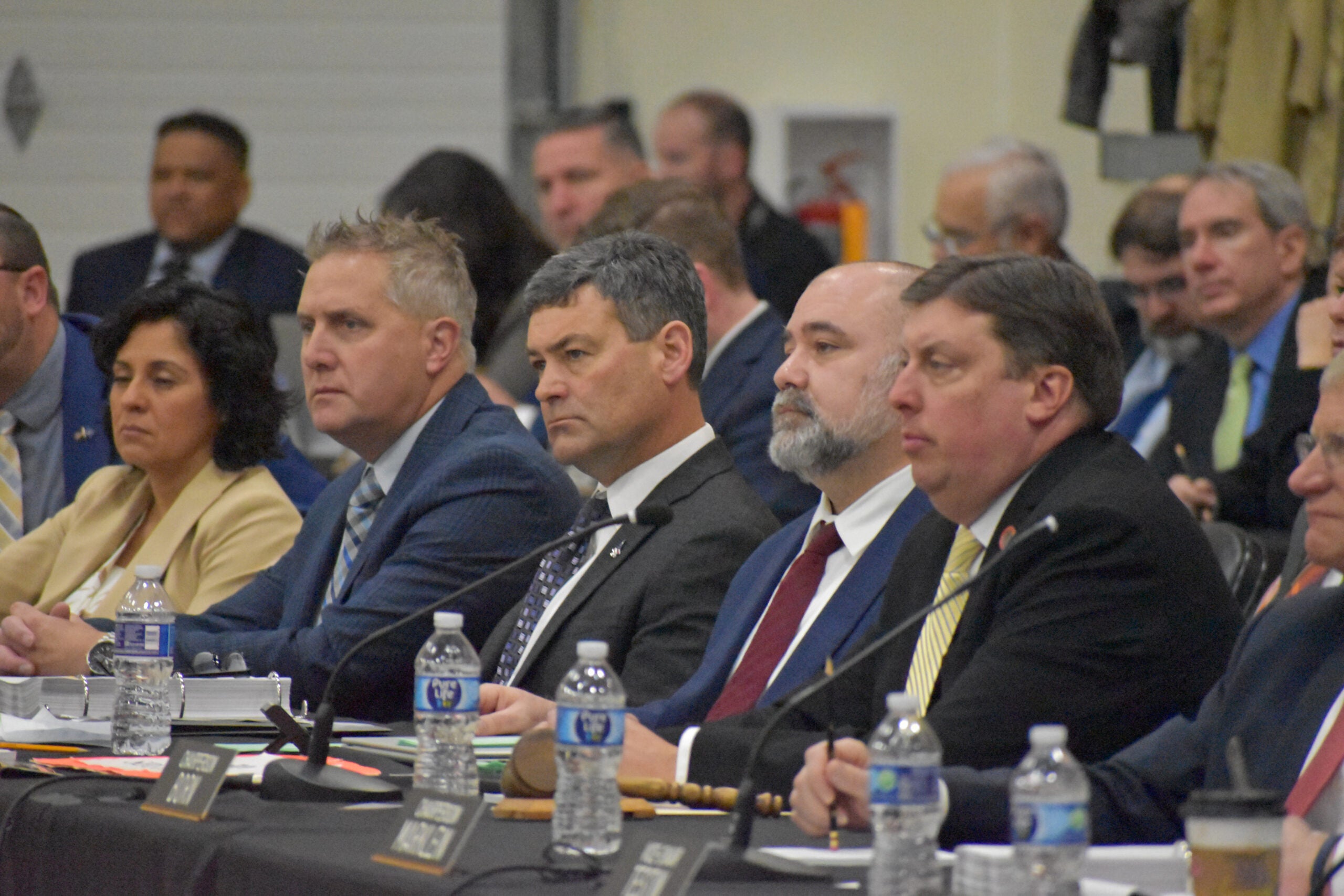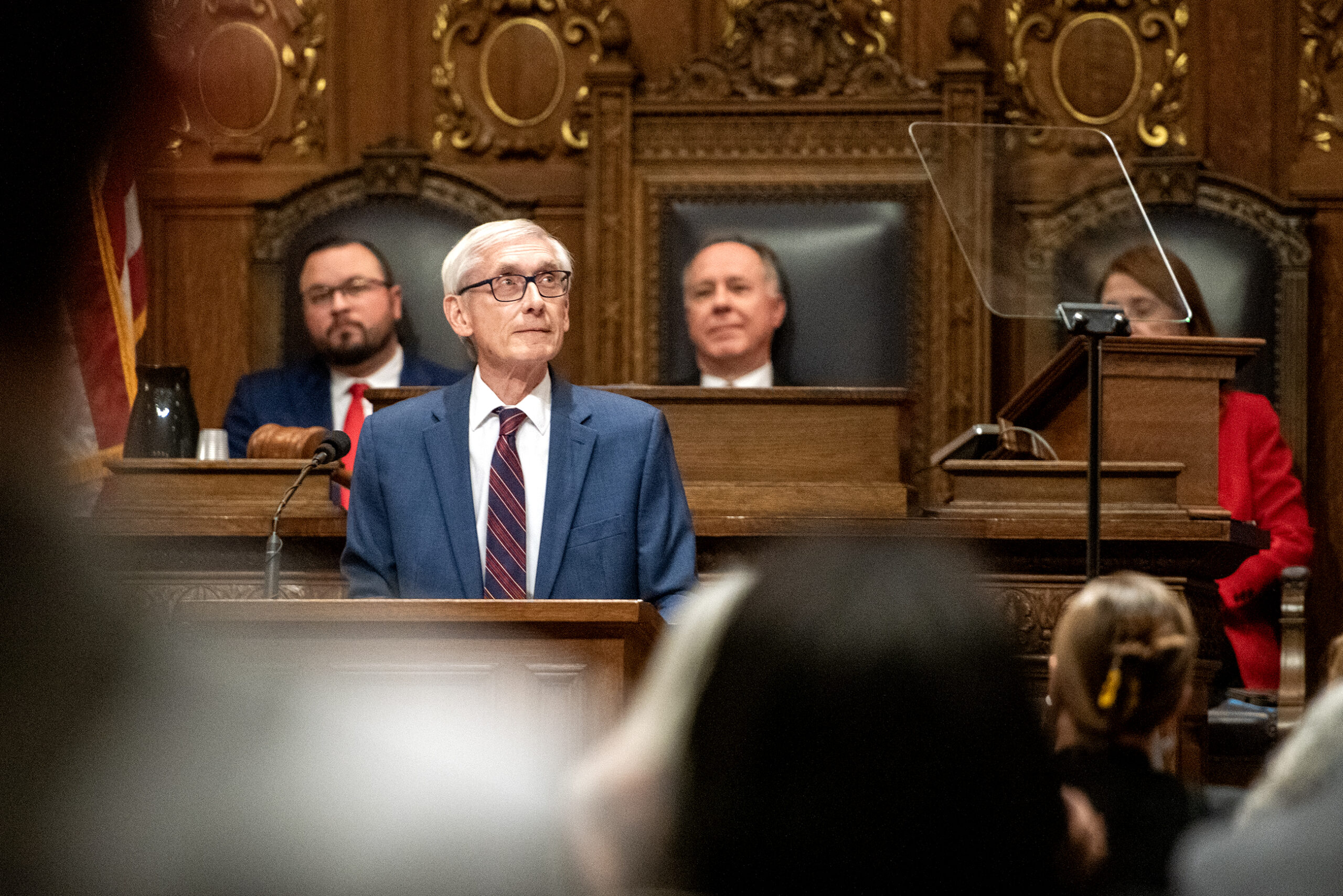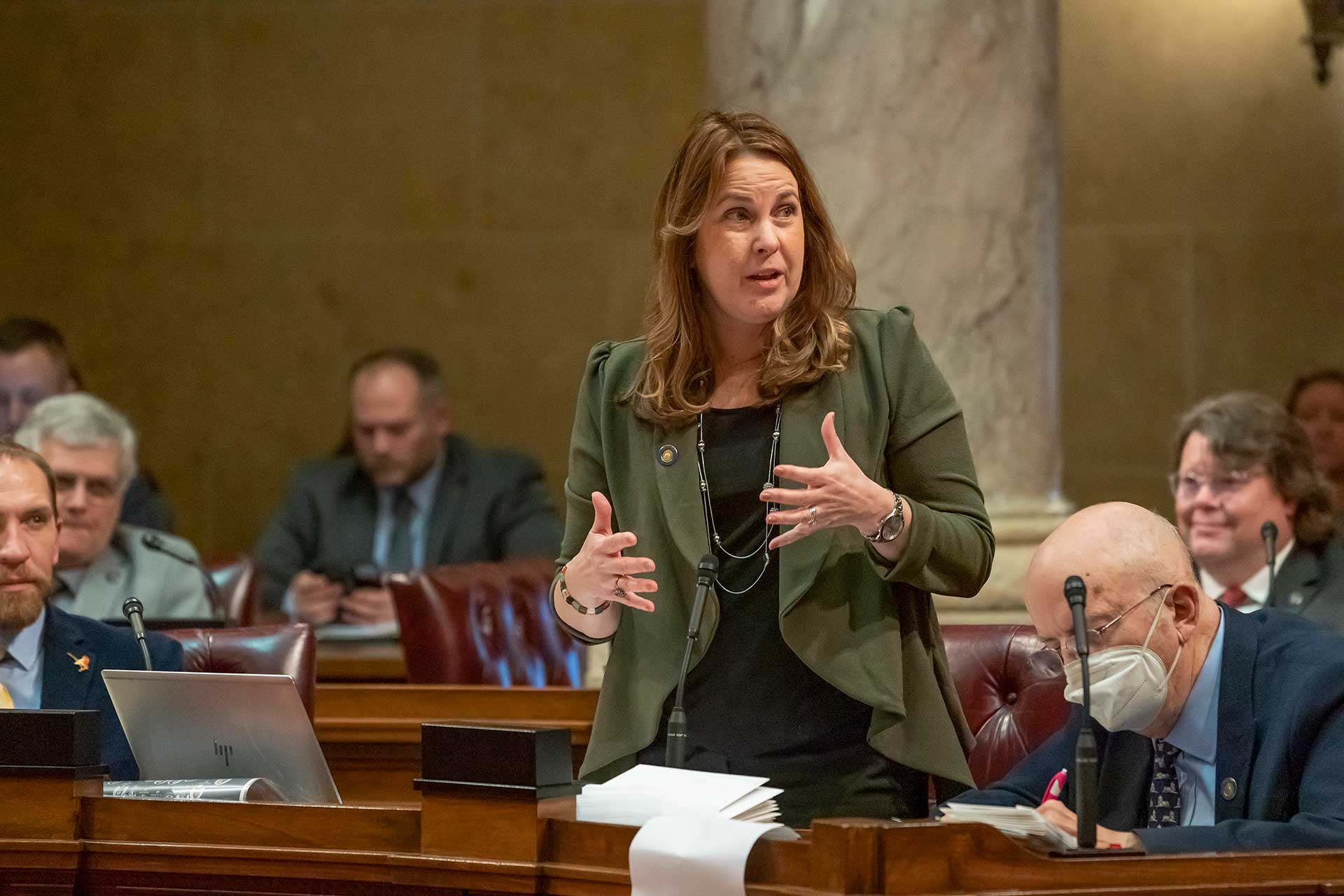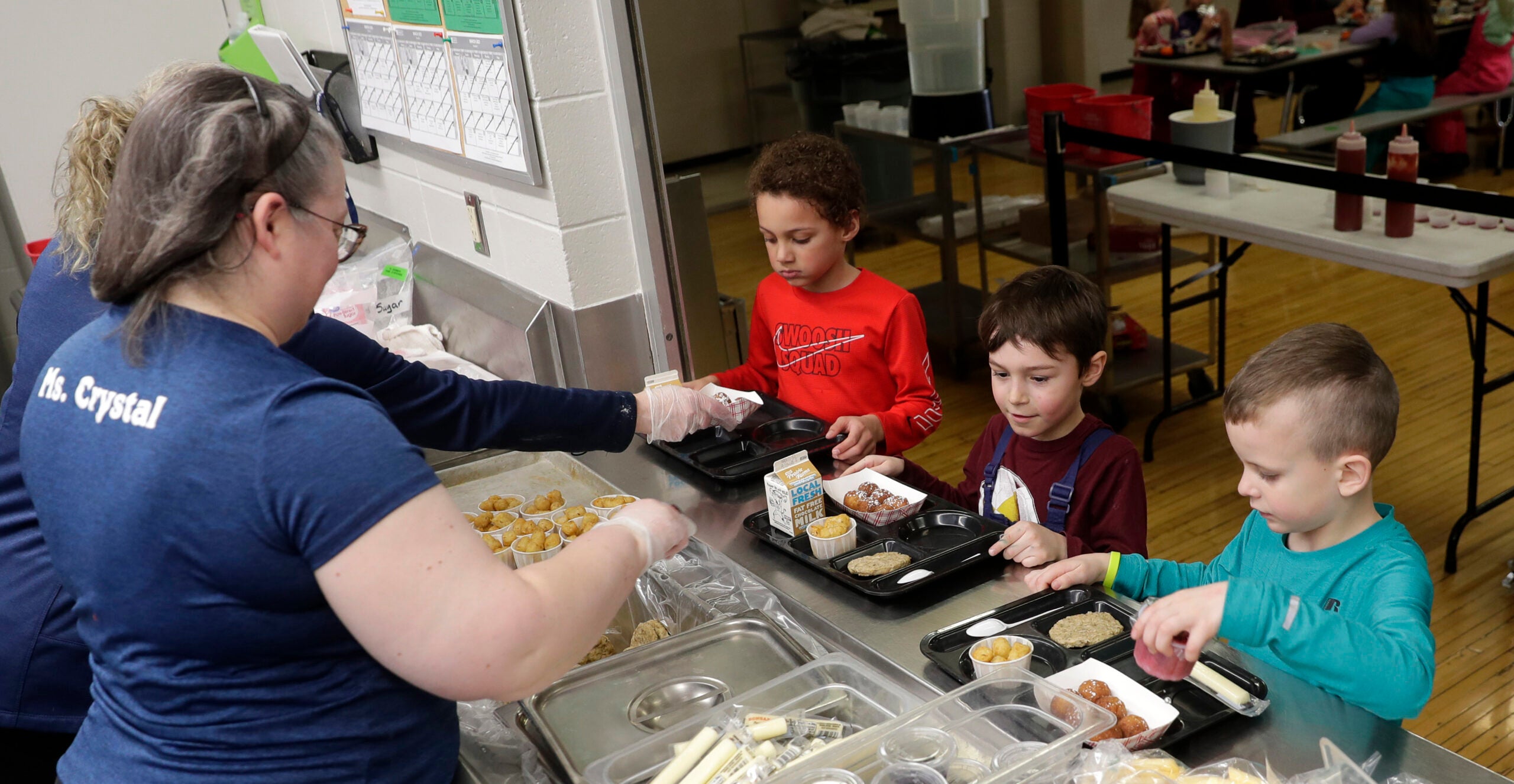Gov. Scott Walker announced his support Monday for a proposal that would allow some of Wisconsin’s most frugal school districts to raise their local property taxes.
The proposal, authored by Rep. John Nygren, R-Marinette, would lift a state-imposed spending cap for low-spending schools from $9,100 to $9,400 per student for the 2018-19 school year, with $100 annual increases until the 2022-23 school year.
The plan would also increase sparsity aid for rural districts across the state by $6.4 million for the 2018-19 school year by bumping up per-pupil sparsity spending from $300 to $400.
Stay informed on the latest news
Sign up for WPR’s email newsletter.
School districts qualify for sparsity aid if they have 745 students or less and a population density of less than 10 students per square mile.
Nygren said lifting the spending cap would help address inequities between frugal districts and those that have approved property tax increases though referendum.
“We do find numerous situations throughout the state where there is a vast inequity of funding available per pupil,” Nygren said. “You can have districts within five, six miles of each other — and I know these districts exist — where there’s a difference of $2,000 you’re allowed to spend per pupil.”
Lifting the revenue limit had been a majority priority for Assembly Republicans during the last state budget process. Walker vetoed an increase approved by the Legislature, citing concern about raising property taxes without voters’ consent.
But Walker announced his approval for Nygren’s bill on Monday.
“Our top priority is driving student success and ensuring our children receive a quality education, regardless of where they live,” Walker said in a prepared statement.
The bill includes a provision that would bar districts from raising their revenue limit if a referendum to approve such a move was rejected by the voters within the past three years. In his statement, Walker said this element would “ensure accountability to local voters.”
According to the Wisconsin Association of School Boards, about 80 districts across Wisconsin would quality for the revenue increase, while seven districts would be temporarily barred by a recent, failed referendum.
Democrats pushed back on the proposal on Monday.
Sen. Janet Bewley, D-Ashland, who represents a rural district, expressed concern that the proposal is a political ploy in an election year.
“Frankly, I am going to wait until I see something get passed before I believe that the governor or Rep. Nygren is sincere in really wanting to fix these problems for rural schools,” Bewley said.
Senate Minority Leader Jennifer Shilling, D-La Crosse, echoed that sentiment, calling the proposal a “hollow campaign gimmick” in a prepared statement.
“This is nothing more than an election year stunt meant to distract voters from the Walker administration’s gross mismanagement of our public education system,” said Assembly Minority Leader Gordon Hintz, D-Oshkosh.
Senate Majority Leader Scott Fitzgerald, R-Juneau, and Assembly Speaker Robin Vos, R-Rochester, didn’t immediately return requests for comment on the proposal.
Editor’s Note: This story was updated at 4:03 p.m. Monday, Jan. 8, 2018 with original reporting from WPR.
Wisconsin Public Radio, © Copyright 2025, Board of Regents of the University of Wisconsin System and Wisconsin Educational Communications Board.
